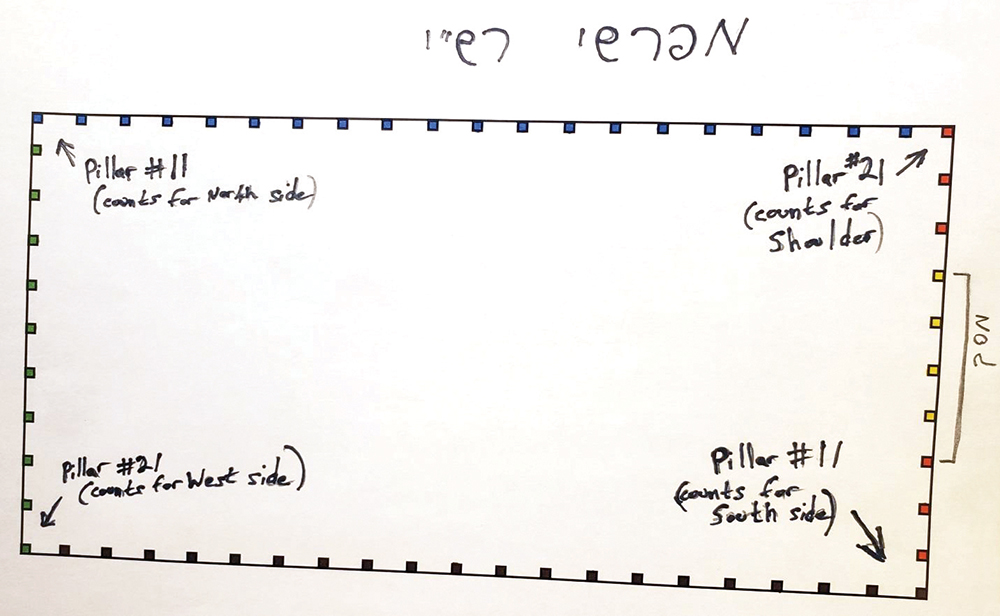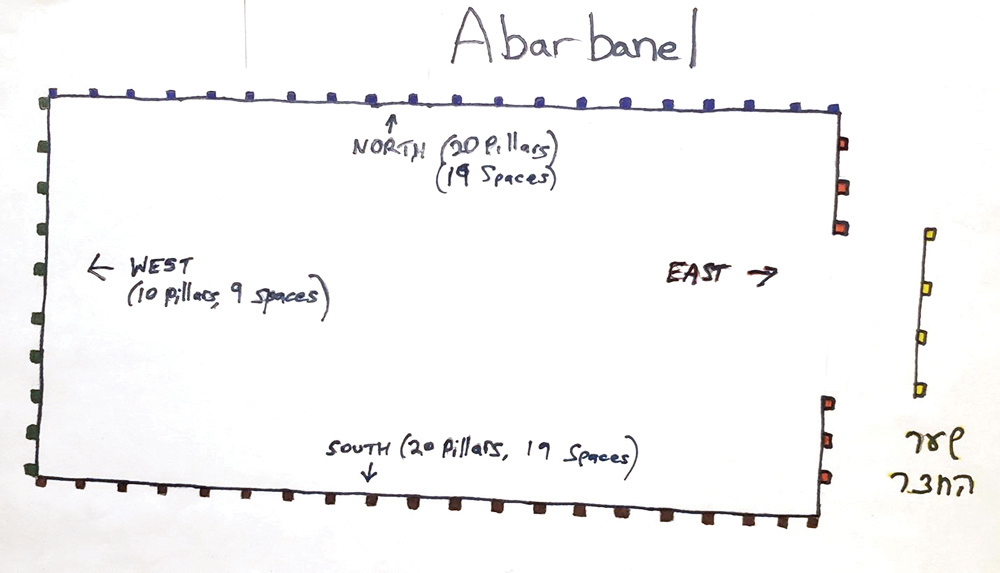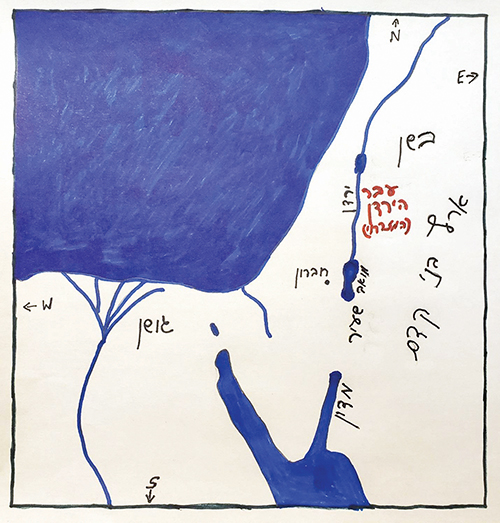
Rashi’s Perspective on the Location of the Courtyard Pillars
Last week, I discussed three possible solutions to the math problem presented by the location of the pillars on the perimeter of the Mishkan. In

Last week, I discussed three possible solutions to the math problem presented by the location of the pillars on the perimeter of the Mishkan. In

The courtyard of the Mishkan was 100 אמות long and 50 אמות wide (Shemos 27:18), with the perimeter (besides the entranceway) enclosed by קלעים (lace-like

The fourth stop the Children of Israel made after leaving Egypt was Marah (Shemos 15:23, Bamidbar 33:8). “There (in Marah), [God] placed [before them] decrees

When the Torah was given, the mountain that God descended upon is referred to as הר סיני (Shemos 19:11/20). Elsewhere (33:6), what seems to be

A simple understanding of the crossing of the Yam Suf would be that this body of water was in between Egypt and Eretz Yisroel (and/or

Although the Children of Israel lived in ארץ גשן, when they left Egypt, they left from רעמסס (Shemos 12:37). The land they lived in when

When the new Pharaoh came onto the scene (Shemos 1:8), his expressed fear was that if a war breaks out, “the nation of the Children

When Moshe fled from Pharaoh, he went to ארץ מדין (Shemos 2:15). Since מדין was one of the sons Avraham had with Ketura (Bereishis 25:2),

When Yaakov was brought to חברון to be buried, they stopped at גרן האטד, which is described as being בעבר הירדן (Bereishis 50:10). However, to

“And [Yosef] went up to greet his father, to Goshen” (Bereishis 46:32). It would seem obvious that when traveling from the Egyptian capital (where Yosef

Yosef recognized his brothers, but his brothers didn’t recognize him (Bereishis 42:8). Why they didn’t recognize him is discussed (see Rashi), but what about the

When Yehuda’s third child, שלה, was born, he, and/or the birth, was in כזיב (Bereishis 38:5). There is much discussion about why the Torah includes